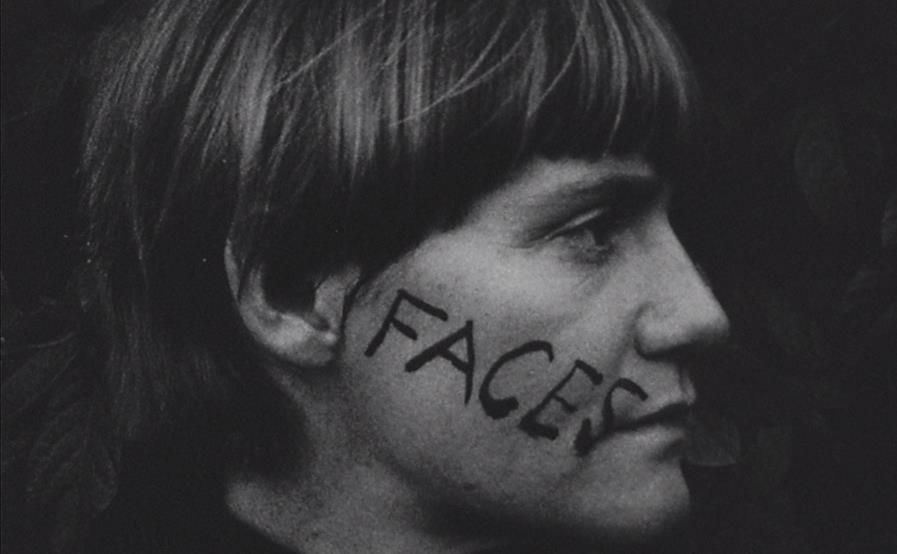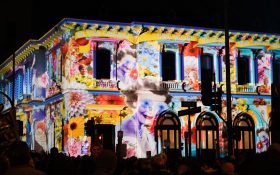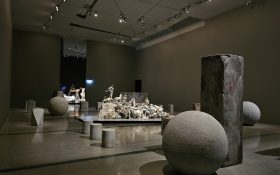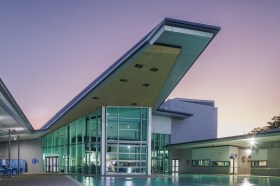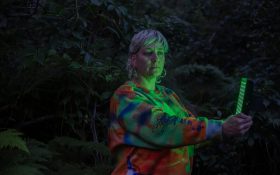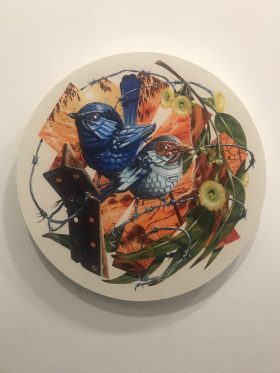Griselda Pollock and Nan Goldin: they are names that nurtured many into feminist thinking at a time when women had little voice in art history.
The National Gallery of Australia (NGA) again calls on their voices at a time when new traction is redefining the spaces of gender equity and diversity.
A celebrated British art historian, Pollock will lead the program for the Know My Name Virtual Conference this November, in a conversation with Australian artist Sally Smart that situates art histories alongside contemporary perspectives on gender.
American artist Nan Goldin, similarly will go head-to-head with Australian-born podcaster and editor-at-large of the London magazine Frieze and Bow Down: Women in Art History, Jennifer Higgie, in a look at the role photography has played in the feminist march through art history.
Higgie said of Goldin: ‘She has always been extremely open in celebrating what gender is, and what it might be, and she is one of the great artists’ that worked against pigeon-holing. But mostly, she has always been an artist of great compassion and acceptance.’
‘She is not a voyeur; she is part of a community.’
It is this kind of pairing of perspectives across time that is the tone shaping the Know My Name Virtual Conference, a four-day event held from 10–13 November as a digital program of keynotes, panel discussions, commissioned performances, and artist-led approaches.
Learn how you can be part of the Know My Name conversation.
Jessi England, Know My Name Program Manager and conference co-curator, told ArtsHub: ‘It’s really an opportunity to bring the industry together – academics, arts organisations, artists and curators – and have shared conversations that delve into the history and contemporary context of representation and inclusion, asking: Where we have been, where are we now, and where would we like to be going?’
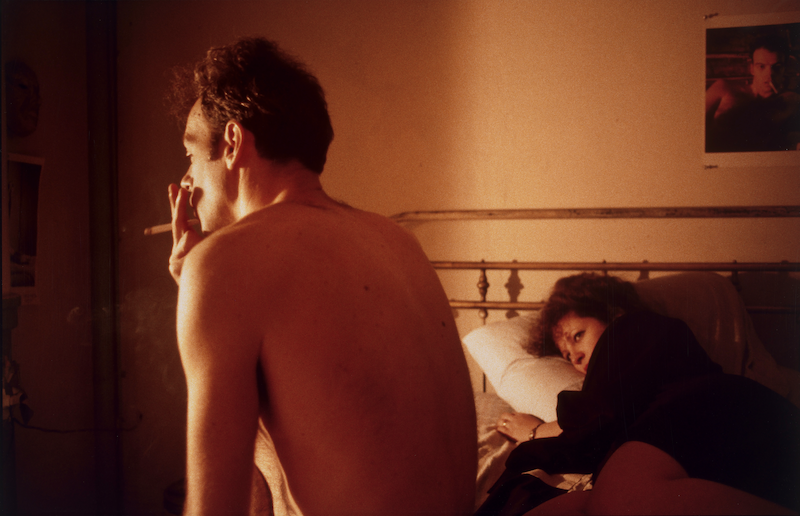
Nan Goldin, Nan and Brian in bed, NYC 1983, dye destruction photograph. National Gallery of Australia, Canberra, purchased 1994, © the artist.
IT’S TIME TO TALK
‘I think that it is really important to recognise that art history is a work in progress,’ Higgie told ArtsHub.
From her experience, Higgie says writers and curators are extremely aware today of women artists and the role they play, but warns that we still need to be aware of the restrictions that interrupt contemporary histories.
‘Obviously things like gender exclusion exist, but there are also people of colour and massive class exclusions. We have to look at all exclusions, and only then, once we start being aware of those barriers of our time, does equitable inclusion open up,’ Higgie said.
England continued: ‘This conference comes at quite a different time for the industry as people are really under fire to be honest.’
She said that the first time she heard of Higgie’s Bow Down Instagram project and podcast series, was from someone outside the industry, adding that raising awareness goes beyond the silo of the sector, to draw a broader public to this conversation.
While acknowledging diverse voices has been key to shaping the conference program, England said the NGA has also placed a deep priority in adopting best practice accessibility for its delivery.
‘We have worked with new technologies so [participants] can choose their own access stream, placing everyone in the same discussion, asking the same questions, at the same time.’
‘We have to look at all exclusions, and only then, once we start being aware of those barriers of our time, does equitable inclusion open up.’
– Jennifer Higgie
Opening the conference, Worimi woman Genevieve Grieves will deliver a keynote that picks up on a thread of inclusion and diverse perspectives, which is carried throughout conference.
‘We’ve also made a real commitment to move away from this idea of the binary, and take a more inclusive approach to gender representation,’ explained England.
It is picked up again on Day 2 with a panel discussing Alternative Histories, which looks at queer histories and decolonising projects, further expanded on Day 3 with the Annual Lecture: Decolonising Your Feminism.
It is the first time in the NGAs history that the collective voice – and a First Nations one – is prefaced over a single keynote for the Annual Lecture, with a panel of women: Dr Crystal McKinnon, Kimberley Moulton and Paola Ballo.
‘My experience through the whole development of the Know My Name initiative, is that people in the industry don’t necessarily understand what the different kind of experiences are, the mechanisms of prejudices, the opportunities or lack there of,’ England told ArtsHub.
She added that the idea of the collective, of communities, lineages and mentorship has also been a strong current across feminist art history, taken up in a panel discussion with Dr Mikala Tai, Dr Janine Burke, Fayen Ke’Xiao d’Evie, Ass Prof Mikala Dwyer and artist Bhenji Ra.
WHAT WILL THE AUDIENCE EXPERIENCE BE LIKE?
With a sector facing digital saturation, audience experience is perhaps more important than ever.
‘A huge amount of resources go into these things, at a time when we are all struggling, so it is important to put value on these conversations,’ said England.
‘If one was to read the words of an hour-long conversation that would be 10,000 words!’ said Higgie. ‘We have an endless trust in hearing people talk about their lives – it is a great privilege – and it’s really interesting to see the things that come up spontaneously.’
The program has been designed so people are not just sitting down the whole day trying to absorb, but rather carves out an afternoon window to join in.
‘We have also commissioned three new works by Amrita Hepi, Di Baker Smith & Veronica Tello and Bhenji Ra to keep it engaging and to take people on a journey,’ added England.
And while talk and connection is great, England said it also about thinking beyond connection, to ask what are the opportunities for action.
‘It’s just not talking, but how these talks transpire: what does that mean in real terms of staff, programming, acquisition and policy. We might be committed now, but in five years it could be a different agenda. We have to ensure this work is set in place,’ she added.
Need to know:
The Know My Name Virtual Conference will be presented digitally from 10-13 November 2020. You can sign up for the entire program or pick individual sessions to attend.
The Annual Lecture: Decolonise Your Feminism will be presented on 12 November, 6-7.30pm.
Anyone who purchases tickets to the conference will have access to recordings of all the sessions, for up to 6-months.
Register for the KMN Virtual Conference.
The conference is one of several major projects under the broader Know My Name initiative, and pulls out threads for deeper consideration in the lead up to the exhibition of the same title, opening 14 November.